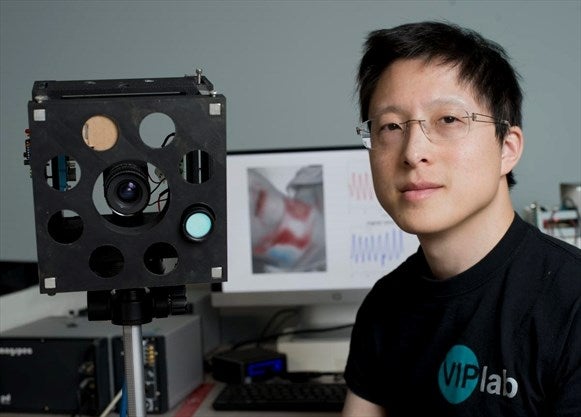Artificial intelligence could be used to help spot arterial plaque, blood clots, clogged or narrowed arteries sooner.

Alexander Wong and his team have developed a simple, hand-held device that could replace pricey, bulky, finicky microscopes. - Peter Lee , Waterloo Region Record
The images on the screen move silently, gently, like waves softly lapping on a beach.
They capture one of the most basic functions in the human body — blood flow through the arteries, and then back to the heart through the veins — but in a mind-blowingly sophisticated way.
A camera the size of a Mars bar points toward the patient reclined on a medical exam table. It doesn't touch the patient's skin, or even get close enough to really invade personal space. But it's able to pick up the subtle changes in the surface of the skin, and translate them into vivid images of the blood flowing powerfully up the carotid arteries to the brain in a flush of red, and then back via the jugular vein outlined in blue.
"You can literally see the blood flowing up your neck to your brain," says Alex Wong, a researcher in artificial intelligence and medical imaging at the University of Waterloo.
Painlessly, accurately and in almost real time, the device could help make advances in preventive health care — spotting arterial plaque, blood clots, clogged or narrowed arteries, and more.
Another project that harnesses the power of AI, his "lab in a box," replaces pricey, bulky, finicky microscopes with a simple device that fits in your hand. [Read more]